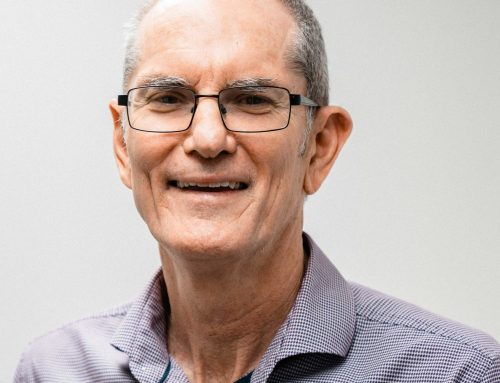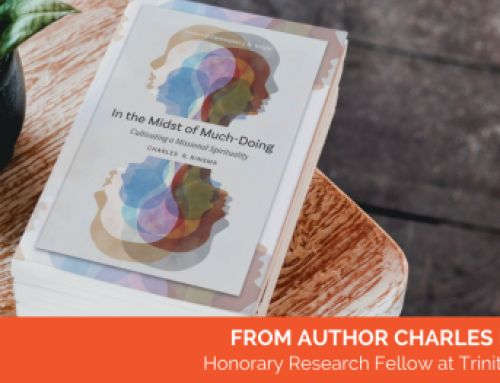Old Testament lecturer, Dr Rachel Krohn shares her insights on how in revisiting old truths, we may find new inspiration to walk in the way of Jesus.
When we plan our discipleship initiatives, we often find ourselves asking what fresh, new idea might capture –and hold– the attention of the people we shepherd. I was asked to share some fresh perspectives on discipleship recently, and quickly realised I didn’t have anything fresh or new to say.
Upon reflection, I came to realise that might actually be a good thing, because the things that are true are seldom fresh or new.
We may express old truths in new ways, but it seems to me that the things that are true have always been (and will always be) so. In revisiting old truths, we may find new inspiration to walk in the way of Jesus.
Let’s start with the basics. What is discipleship?
I cannot think of a passage in which Jesus is asked to define discipleship, but there are several instances in which Jesus is asked what one must do to inherit eternal life. In an exchange with Jesus recorded in Luke 10:25-28, a Bible teacher correctly identifies the weightiest matters in the scriptures, the commands closest to God’s heart: love God, and love your neighbour. These commands come from Deuteronomy 6 and Leviticus 19, books often regarded as irrelevant to us today.
Most translations render Deuteronomy 6:5 as ‘Love the LORD with all your heart and with all your soul and with all your strength’ and that is okay as long as we understand what the Hebrew word nefesh and its Greek counterpart psyche, the words represented by the English word soul, mean in these passages.
We tend to think of human beings as consisting of body and soul, but this is not how the Old Testament writers thought of it. There is no word in biblical Hebrew that corresponds to our concept of ‘body’. In the Old Testament, nefesh refers to all of our embodied existence.
A living person is a nefesh. A human being consists of, in the words of Rabbi Lord Jonathan Sacks, the dust of the earth and the breath of God. At the end of our lives, the breath of God returns to God and what is left is a corpse, a gufâ. Those are the Old Testament categories.
When we are called to love the LORD with all our heart, all our nefesh, and all our strength, what we are being called to is to love the LORD with our whole life, our entire embodied existence.
Discipleship encompasses all of who we are; no aspect of our existence should be untouched by the process of discipleship. Discipleship is a process by which our entire embodied existence becomes more fully aligned with the purposes of God; discipleship is the means by which Jesus becomes Lord of all we are.
Jesus did not come to write new scriptures, but to fulfill old ones; Jesus has shown us what it means to live a life fully aligned with the revealed words of God.
What does discipleship have to do with the Great Commission?
Discipleship takes place in community. We spread the good news of Jesus Christ with the idea that when someone receives the gospel, they join a living body where the process of discipleship is ongoing.
In Matthew 28:19-20, all the commands – go, make disciples, baptize, teach – are plural. We are not lone evangelists, singlehandedly going out and winning souls for Christ. No, we are disciples in community. The way we love one another bears witness to Christ, and through us, God draws people to himself.
There is nothing new or innovative about this, but the things that are true are seldom fresh or new.
Question: You make it sound simple, but what does discipleship look like in the world today?
Discipleship is more straightforward than we think. It involves devoting ourselves to understanding the scriptures and living by them, sharing everything in common, meeting together for prayer and table fellowship, and service. These are the means by which all of our lives become more fully aligned with the purposes of God; these are the means by which we are conformed to the image of Christ.
There are those who liken the Church in the West, and Australia in particular, to Israel in exile. If the Church is in exile, we need to understand why.
The cause of exile is remarkably simple: failure to attend to scripture; failure to keep God’s commands. The solution to exile is equally simple; Moses says, ‘heed the LORD and obey all His commandments’ (Deuteronomy 30:8); Jesus simply says, ‘keep my commands’.
But even this solution is a gift of grace. Our only responsibility is to return to the LORD and to heed God’s commands. It is God’s responsibility to circumcise our hearts, to send the Spirit to teach us, and to empower us to love the LORD our God with all of our embodied existence, that we might live.
Discipleship is not complicated, but it is all-consuming.
Discipleship requires effort; discipleship requires sacrifice.
The only way to be a living sacrifice is to continue on the way, to continue meeting together, to continue to devote ourselves to ‘the scriptures, to the apostles’ teaching, to the fellowship, to the breaking of bread, and to prayer; to hold everything in common, selling our possessions and goods, and giving to everyone who has need; to break bread in homes and eat together with glad and sincere hearts, praising God.’ (Acts 2:42-47)
It really is as simple and profoundly demanding as that.
This is an abridged version of the Bible Study delivered by Dr Rachel Krohn at the Uniting Church in Australia Synod in Session on Saturday 14 May 2022. Download Rachel’s full text here.
Invite Dr Rachel Krohn to speak at your church or conference.






